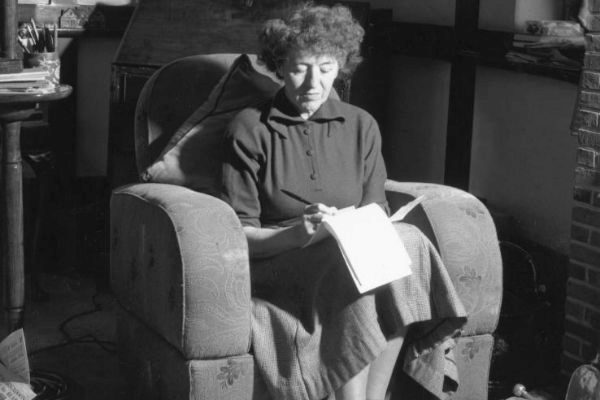It seems one of those riddles that made such grace in the days before the political correctness : What do Alain Delon, Louis-Ferdinand Céline and Enid Blyton have in common? ... The macula poured over their tributes based on the application, with retroactive nature of the current political correctness. Last spring, when Delon was distinguished with the Golden Palm for his filmography, the concession was overshadowed by his well-known support for the French extreme right and for certain statements in which he claimed to have hit women. On the other hand, the author of Travel at the end of the night (1932) has not been able to be the object of any official tribute in his country despite the fact that his novel is one of the tops of the French narrative of the twentieth century. His anti-Semitism, which during the war led him to be complicit in the invaders of France - where he was declared "national misfortune" in 1950 - always prevents him.
The Englishwoman Enid Blyton - one of the most translated authors of youth literature of the twentieth century - has been the last to join the list of illustrious whose memory has been overshadowed by what they did or said. It has been known these days that, on the occasion of the fiftieth anniversary of his death, last year, the British Mint wanted to coin a piece alluding to the author of the adventures of The Five , The Seven Secrets and so many other "constructive readings ", that they said when they realized them, in their unforgettable translations of Editorial Juventud, the Spanish children of 50 years ago. A report warned that a coin dedicated to this writer could shock several groups for racism, sexism and homophobia manifested in her proposal.
It was the Afro-Caribbean writer Jamaica Kincaid who pointed out the racism of Noddy , a children's series that Blyton created for the English evening Evening Standard in 1949, in which all blond children were good and bad, golliwoggs . They were the latter an offensive cartoon of blacks that had their origin in the nineteenth-century Anglo-Saxon children's literature. Walking the first year of the 21st century, the main company that sold the golliwoggs , James Robertson & Sons , decided to stop manufacturing these controversial ragdolls, thus responding to the pressures of civil rights associations and the Government.
However, in the pages of Enid Blyton the golliwoggs continued to steal the children when the little ones asked for help. The inquina of the writer to the people of color came from yesteryear. In The little black doll (1937), Sambo is a doll that everyone hates for his "ugly black face". Faced with such a scenario, the poor toy flees until a shower falls on him, the rain cleanses his face and returns home happily integrating. Finally, before Jamaica Kincaid, Blyton's manifest racism had already been denounced by Labor Deputy Lena Jeger in a famous article published in The Guardian .
The past should not be judged from the perspectives of our time. But the case is that it is done constantly. With regard to sexual equality, seen from today, Enid Blyton does not measure up. Georgina, one of the protagonists of the adventures of The Five is a very manly girl, a young virago who calls himself Jorge. His cousin Dick comes to tell him verbatim: " It's time for you to stop thinking you're as good as a boy ."
Certainly, after the first accusations of sexism, the references to the masculinity of Georgina's hairstyle and those others to the mane that the girls need to be considered as such, expressed in A Weekend of The Five (1951), a of the most outstanding deliveries. But the thing is not just amended. And what to say, on the other hand, of the xenophobia of an author for which all thieves are foreigners.
According to the criteria of The Trust Project
Know more- literature
- culture
- Racism
- Homophobia
- UK
Culture The work and memory of the poet Miguel Hernández travel to the Philippines whose legacy custody Jaén
The Paper Sphere Captive Time
ABELES AND CAINES The Goytisolo: an insatiable thirst for love and anger

